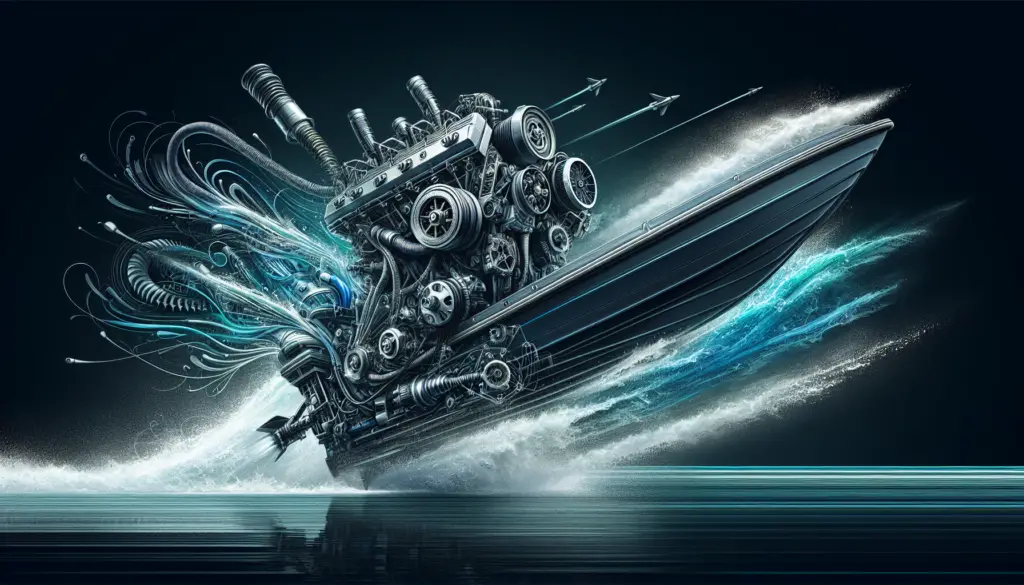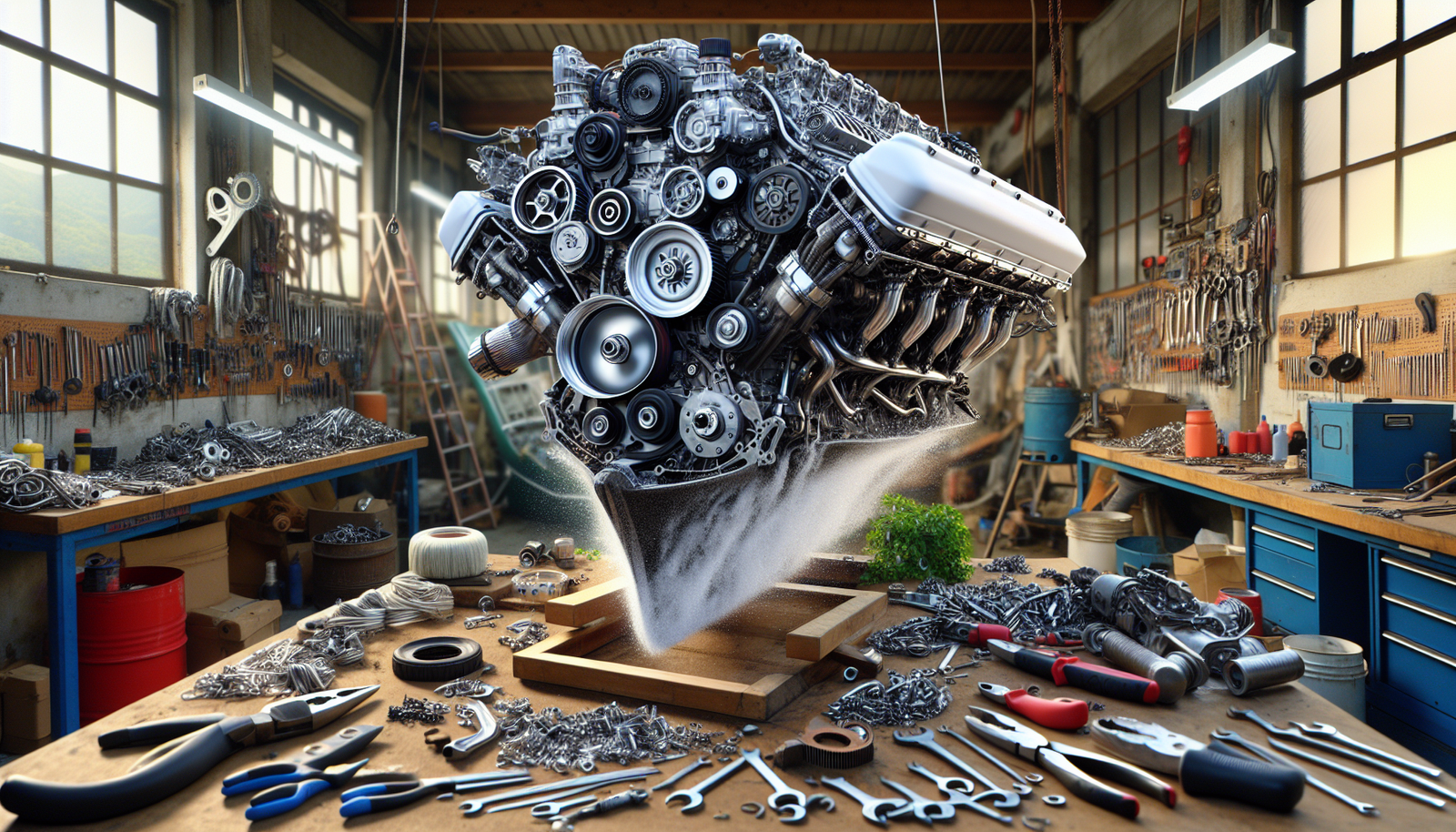So you’ve recently become the proud owner of a boat and you’re itching to make some upgrades to the engine? Look no further! This beginner’s guide to boat engine modification is here to help you navigate the world of horsepower enhancements and performance tweaks. Whether you’re seeking improved speed, fuel efficiency, or overall power, we’ve got you covered. Get ready to unlock the full potential of your boat’s engine and take your boating experience to the next level.
Choosing the Right Engine
When it comes to boat engine modification, choosing the right engine is the first and most crucial step. There are several factors to consider, and it can be overwhelming if you’re not familiar with engines. To make the process easier, it’s important to understand the different engine types, sizes, and power outputs.
Engine Types
There are two main types of boat engines: inboard and outboard. Inboard engines are located within the hull of the boat, while outboard engines are attached to the stern. Each type has its own advantages and considerations. Inboard engines offer better weight distribution and are usually quieter, but they can be more expensive to install and maintain. Outboard engines, on the other hand, are easier to access for maintenance and repairs and can provide more maneuverability.
Engine Size
Choosing the right engine size is crucial for boat performance. It is essential to match the engine size with the size and weight of the boat. An engine that is too small may not be able to effectively propel the boat, while an engine that is too large may consume excessive fuel. Consulting the manufacturer’s recommendations or seeking advice from a reputable mechanic can help you determine the appropriate engine size for your boat.
Power Output
The power output of an engine determines its performance capabilities. It is measured in horsepower (HP) and is crucial for speed, acceleration, and overall boat performance. Higher power output generally means better performance, but it also comes with increased fuel consumption. Consider your boating needs and preferences when choosing the power output of your engine. A balance between power and fuel efficiency is often desired.
Understanding Engine Components
A good understanding of the various engine components is essential for any boat owner considering modifications. Here are some key components to be familiar with:
Fuel System
The fuel system is responsible for delivering the fuel from the tank to the engine. It consists of various components like the fuel pump, fuel injectors, and fuel filter. Upgrading the fuel system can enhance performance and fuel efficiency.
Ignition System
The ignition system is responsible for igniting the fuel-air mixture in the combustion chamber. It includes components such as spark plugs, distributor, and ignition coil. Upgrading the ignition system can improve fuel combustion and overall engine performance.
Cooling System
The cooling system prevents the engine from overheating by regulating its temperature. It consists of a radiator, water pump, and coolant. Upgrading the cooling system can improve the engine’s ability to handle higher temperatures and prevent costly damages.
Exhaust System
The exhaust system helps remove the byproducts of combustion from the engine. It includes components like the exhaust manifold, muffler, and catalytic converter. Upgrading the exhaust system can increase engine performance and reduce noise.
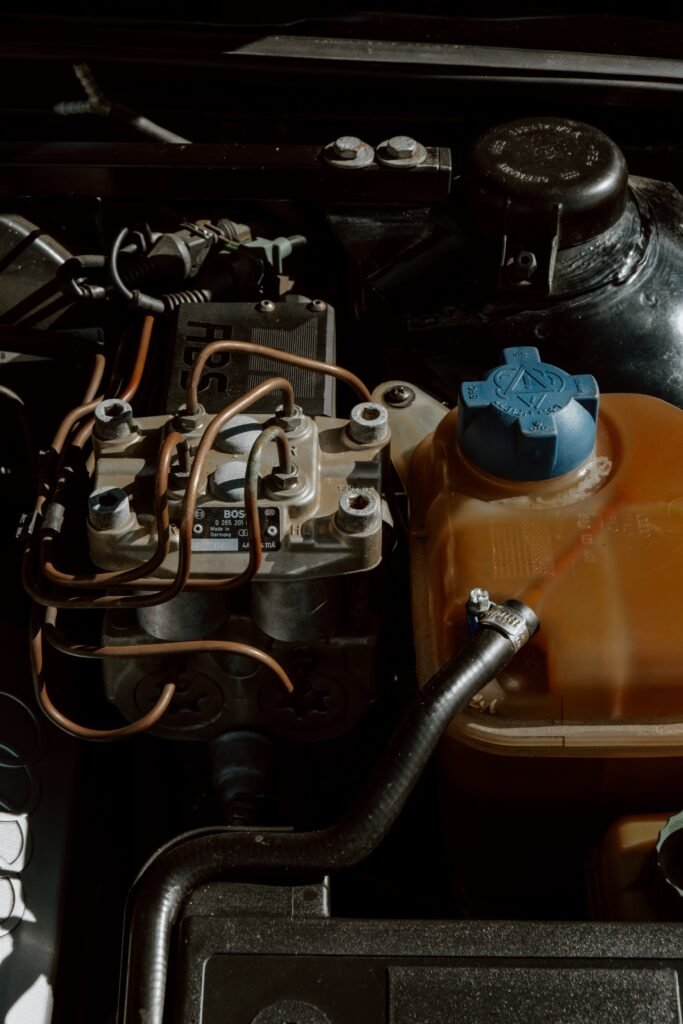
Performing Basic Maintenance
Regular maintenance is essential for the longevity and performance of your boat engine. Here are some basic maintenance tasks that every boat owner should be familiar with:
Changing Engine Oil
Regularly changing the engine oil is vital for maintaining proper lubrication and preventing corrosion. Follow the manufacturer’s recommendations for the correct oil type and interval for oil changes.
Replacing Spark Plugs
Spark plugs play a crucial role in igniting the fuel-air mixture. Over time, they can become worn or fouled, leading to poor engine performance. Regularly inspect and replace spark plugs as needed.
Cleaning Air Filters
Air filters prevent dirt and debris from entering the engine and can become clogged over time. Cleaning or replacing air filters regularly will ensure optimal engine performance and fuel efficiency.
Checking and Adjusting Belts
Belts in the engine’s accessory drive system, such as the serpentine belt, control the operation of components like the alternator and water pump. Regularly check and adjust belt tension to prevent slippage and ensure proper functioning.
Improving Fuel Efficiency
Improving fuel efficiency not only helps reduce operating costs but also minimizes the environmental impact of your boat. Here are some modifications you can make to enhance fuel efficiency:
Upgrading Fuel Injectors
Upgrading to high-performance fuel injectors can help deliver fuel more precisely and efficiently, resulting in better fuel combustion and improved fuel efficiency.
Installing a Fuel Stabilizer
Using a fuel stabilizer helps prevent fuel degradation and the formation of harmful deposits. It is essential for boats that sit idle for extended periods, ensuring the fuel remains fresh and preventing engine issues.
Using a Fuel Additive
Fuel additives can help improve the quality of fuel, enhancing combustion and reducing carbon deposits. Using a fuel additive regularly can contribute to improved fuel efficiency.
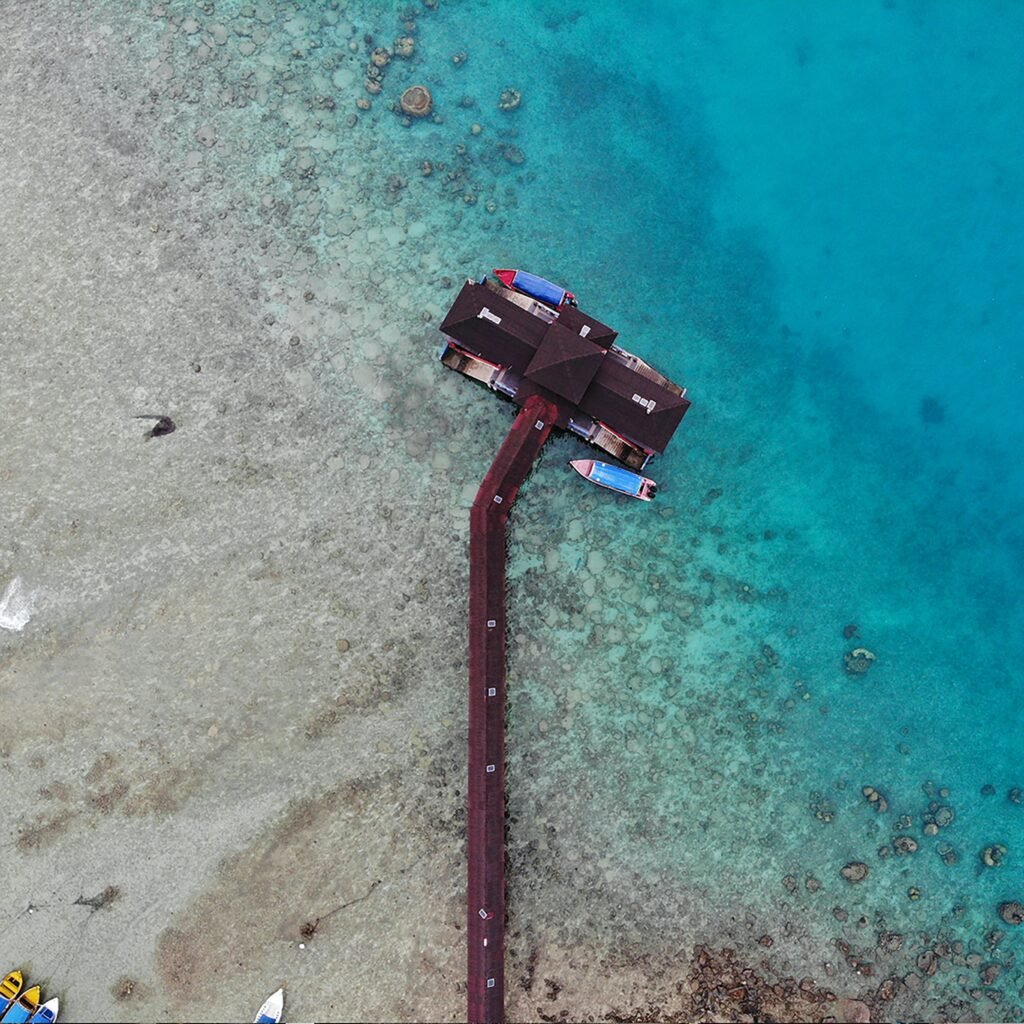
Enhancing Performance
If you’re looking to boost your boat’s performance, here are some modifications to consider:
Upgrading Air Intake System
An upgraded air intake system allows for better airflow into the engine, resulting in increased power and improved throttle response. Cold air intake systems are popular choices for performance enhancements.
Upgrading Exhaust System
An upgraded exhaust system can improve engine performance by reducing backpressure and improving the evacuation of exhaust gases. It can also provide a more aggressive sound.
Installing a Power Programmer
A power programmer is a device that allows you to modify the engine’s computer settings, optimizing performance and power output. It can be a simple plug-and-play solution for performance enhancements.
Improving Engine Timing
Optimizing the engine’s timing can significantly impact performance. Adjusting the timing or installing a timing advance kit can result in improved power delivery and fuel efficiency.
Increasing Durability
Enhancing the durability of your boat engine is essential to ensure reliable performance and reduce the risk of breakdowns. Consider the following modifications:
Upgrading Engine Cooling System
Upgrading the engine’s cooling system can help improve its ability to dissipate heat, especially during extended periods of high-speed operation. Install a larger radiator, high-flow water pump, or additional cooling fans.
Installing an Engine Flush Kit
An engine flush kit allows you to easily flush out saltwater or other contaminants from the engine’s cooling system. Regular flushing helps prevent corrosion and prolongs the life of your engine.
Using High-Quality Lubricants
Using high-quality lubricants can significantly improve engine durability. Opt for marine-specific lubricants that are designed to withstand the harsh marine environment and provide superior protection.

Adding Safety Features
Safety should always be a top priority when boating. Consider these modifications to enhance safety on your boat:
Installing a Fire Suppression System
A fire suppression system is a crucial safety feature that can help prevent or extinguish engine fires. It can provide peace of mind knowing that you have a reliable method to combat a potentially dangerous situation.
Adding a Bilge Pump
A bilge pump helps remove water from the bilge area, preventing flooding and improving overall safety. Install a reliable bilge pump that can handle the water capacity of your boat.
Upgrading Engine Electrical System
A reliable electrical system is essential for safety and proper engine operation. Consider upgrading to a higher-capacity battery, ensuring all connections are secure, and inspecting the wiring for any signs of wear or damage.
Exploring Advanced Modifications
For those looking to take engine modification to the next level, here are some advanced options to consider:
Supercharging or Turbocharging
Supercharging or turbocharging the engine can significantly increase power output and performance. However, these modifications require careful planning, as they may involve extensive engine modifications and can be costly.
Engine Rebuild or Replacement
If your boat engine is old or needs significant repairs, you may consider a complete rebuild or replacement. Rebuilding or replacing the engine can provide a fresh start and ensure reliable performance for years to come.
Upgrading to a Performance Propeller
Upgrading to a performance propeller can improve acceleration, top speed, and overall handling. Consider consulting with an expert to determine the best propeller size and pitch for your boat and engine combination.
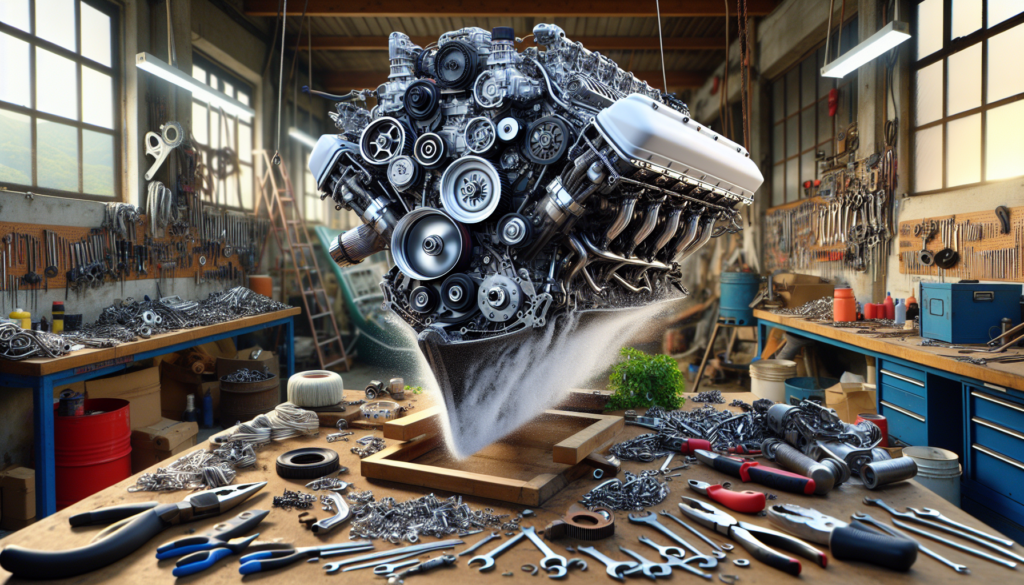
Understanding Legal and Environmental Considerations
Before making any modifications to your boat engine, it is essential to understand the legal and environmental considerations. Here are some factors to keep in mind:
Understanding Local Regulations
Different jurisdictions may have specific regulations regarding engine modifications, noise levels, emissions, and boat safety features. Familiarize yourself with local laws and regulations to ensure compliance.
Considering Environmental Impact
Boating and engine modifications can have an impact on the environment. Be mindful of the ecological consequences and take steps to minimize your carbon footprint. Consider eco-friendly modifications and responsible boating practices.
Seeking Professional Help
While some modifications can be done by the average boat owner, others may require the expertise of a professional mechanic. Here are some tips for seeking professional help:
Choosing a Reputable Mechanic
When selecting a mechanic for your boat engine modifications, opt for someone with experience and expertise in marine engines. Consider asking for recommendations from fellow boaters or checking online reviews to ensure you choose a reputable professional.
Getting Expert Advice
If you’re unsure about certain modifications or have specific questions, seek advice from industry experts. Local marine shops, boat clubs, and online forums can be valuable sources of information. An expert’s guidance can help you make informed decisions and avoid potential pitfalls.
By following the guidelines and considering the range of modifications available, you can enhance the performance, durability, and safety of your boat engine. Remember to always prioritize safety and comply with local regulations for a trouble-free and enjoyable boating experience.
